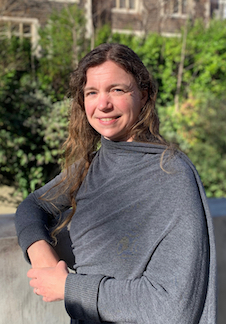Monday 2 August 2021 9:59am
Menstrual tracking apps are widely used to monitor menstruation and record its characteristics, but they routinely promise more than they can deliver, a University of Otago academic argues.

Dr Bryndl Hohmann-Marriott
Dr Bryndl Hohmann-Marriott, a sociologist in the School of Social Sciences, says most apps imply they can measure ovulation, and some apps are using compiled data to suggest clinical problems, including endometriosis and polycystic ovary syndrome (PCOS).
She has received a $30,000 Health Research Council Health Delivery Research Activation Grant to investigate the accuracy and suitability of clinical advice offered by menstrual apps.
“These apps are convenient, helpful and can be fun. For people with regular cycles, their predictions of the next cycle can also be useful.
“However, they also give a date of ovulation, which could be very helpful as it is very difficult to detect, but their predictions of ovulation have been tested and found to be not precise enough to use for either trying to conceive or to prevent pregnancy. Despite this, people are using the app predictions in hopes of preventing pregnancy – they need to know this is quite risky.
“Another downside is that all information the apps are collecting can – and probably is – being shared with advertisers,” Dr Hohmann-Marriott says.
The newest feature of some apps is to offer prediagnosis of conditions such as endometriosis and PCOS.
“While it’s great to have more help with these conditions, which can take years until diagnosis and have many inequities, the concern is that the app warnings could be inaccurate: they might cause unnecessary alarm while missing actual cases.
“My HRC grant aims to find out how these app prediagnosis systems were developed and tested, and to develop guidelines for how they can be used.”
This project continues Dr Hohmann-Marriott’s work with Dr Jane Girling of the Department of Anatomy and will initiate the Menstrual Health Technologies Aotearoa (MeHTA) programme, which aims to develop guidelines and tools for using menstrual and reproductive health technologies which will reduce inequalities and meet the wellbeing needs of Aotearoa New Zealand.
“I see this study as a first step towards improving the usability of menstrual tracking apps for reproductive healthcare in Aotearoa New Zealand. Our ultimate goal is to provide practical guidelines and tools about how to use health technologies for those seeking to understand reproductive health issues.”
For more information, contact:
Dr Bryndl Hohmann-Marriott
School of Social Sciences
University of Otago
Tel +64 3 479 8753
Email bryndl.hohmann-marriott@otago.ac.nz
Ellie Rowley
Communications Adviser
University of Otago
Mob +64 21 278 8200
Email ellie.rowley@otago.ac.nz
